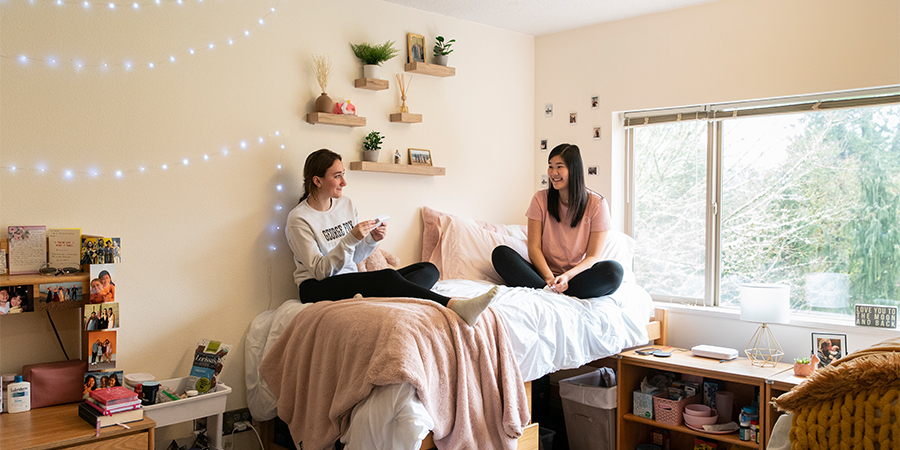Finding a roommate when moving to a new city or needing to fill an empty room in your apartment can be a challenging process. You want to find someone you can live comfortably with that you trust to pay rent on time and respect communal spaces. However, it's not always easy to vet potential roommates and determine compatibility. This article will provide tips and best practices for smoothly finding a roommate.
Know What You Want
Before you start searching, take some time to think about the type of roommate situation and person you want. Consider factors like:
-
Lifestyle - Do you want someone who is very social and has people over frequently or prefer a quieter setup?
-
Schedule - What are your regular hours and days you're home? Look for someone with compatible habits.
-
Cleanliness - How tidy do you like shared spaces to be kept? Be upfront about your cleanliness preferences and find someone on the same page.

-
Pets - Do you or any potential roommates have pets? This is an important compatibility factor to clear up before moving in together.
-
Budget - Determine a fair monthly rental price range both you and your roommate can afford comfortably.
Having clear expectations of what you want in a roommate makes the searching and screening process much easier. You'll be able to identify strong candidates instead of wasting time with mismatches.
Post Listings in Multiple Places
When you have an idea of what you're looking for in a new roommate, it's time to start spreading the word. Post detailed listings in as many online forums and physical bulletin boards as possible. Some good options include Craigslist, your local Facebook housing/rooms groups, building/student housing message boards, and community college/university housing boards if near one.
Be sure to include all relevant information like rental price, utilities included, your location, room/home details, move-in date, and your expectations for a roommate. The more transparent you are, the better potential roommates can self-select for compatibility. Respond quickly to all inquiries and try scheduling video calls or in-person meetings within a few days.
Read more: Best Practices for Maintaining Good Relationships with Landlords
Screen Thoroughly with Interviews
Once you've found a few interested candidates, it's time to do interviews and screening. Here are some key things to cover:
-
Rental/credit history - Ask for references from previous landlords and how long they've been at current residence. You can also request a credit report.
-
Employment - Get details on their job/income stability to ensure rent will be paid.
-
Criminal/eviction history - Do a background check for any red flags.

-
Cleanliness and habits - Ask how they see dividing chore responsibilities.
-
Personality fit - Make sure you vibe well and want to spend time together.
-
House rules - Cover expectations for shared spaces, visitors, noise levels, etc.
Doing thorough screening protects you and helps identify the roommate with the strongest application and best fit for both compatibility and reliability. Trust your instincts during interviews too.
Tour the Property Together
Once you find a potential top candidate, schedule a showing of the actual property together and do a virtual walkthrough if interviewing remotely. This allows both of you to:
-
Visualize how furniture/space will be divided
-
Ask any other questions about the unit/amenities
-
Determine if the setup will work for both lifestyle needs
-
Spot any compatibility or "dealbreaker" issues earlier on
Touring together and hashing out logistics is a smart vetting step before paperwork and move-in. It can save headaches down the road.
Draft a Roommate Agreement
With a candidate you feel good about, it's time to solidify the arrangement legally with a roommate agreement or contract. In this document:
-
Specify rental amounts and when due each month
-
Divide utilities payment responsibilities
-
Outline what furnishings/appliances are shared vs individual
-
State cleaning/chore expectations and routines
-
Set rules on guests, noise levels, shared food policies
-
Address security deposit specifics
-
Outline a termination policy if either needs to move
Having this agreement signed by both parties protects you financially and establishes expectations upfront to avoid later arguments. Keep the agreement on file for the term of the housing arrangement.

Check References Thoroughly
Even after interviewing an applicant thoroughly, don't skip the reference checking process. Contact all previous landlords, employers, and co-habitants the potential roommate provided. Ask specifics like:
-
Rental payment history and if deposits were returned
-
Relationship with previous roommates
-
Character, values, cleanliness from those who know them
-
Reason for vacating past units
References can uncover small issues or inconsistencies that didn't come up in an interview. Speaking to past housing partners directly is crucial due diligence.
Give a Trial Period
Once move-in occurs, consider doing a 30-day trial period where either party can terminate the agreement with 30 days notice if issues arise. This allows both renter and roommate to experience living together before fully committing long-term. Set clear expectations that you'll touch base after 30 days to ensure it's a smooth fit.
With strategic planning, thorough applicant screening, clear communication of expectations, and protective legal paperwork — you greatly increase your odds of finding a roommate harmony that lasts. Patience and following best practices will lead to comfortable housing.
Read more: Things To Consider When Choosing Between Condos Vs. Apartments





